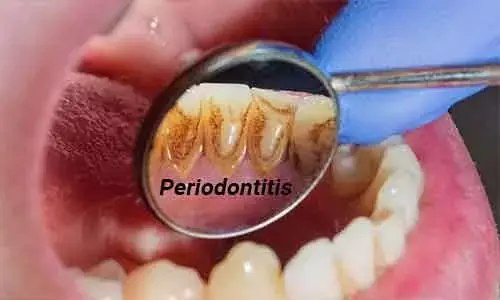- Home
- Medical news & Guidelines
- Anesthesiology
- Cardiology and CTVS
- Critical Care
- Dentistry
- Dermatology
- Diabetes and Endocrinology
- ENT
- Gastroenterology
- Medicine
- Nephrology
- Neurology
- Obstretics-Gynaecology
- Oncology
- Ophthalmology
- Orthopaedics
- Pediatrics-Neonatology
- Psychiatry
- Pulmonology
- Radiology
- Surgery
- Urology
- Laboratory Medicine
- Diet
- Nursing
- Paramedical
- Physiotherapy
- Health news
- Fact Check
- Bone Health Fact Check
- Brain Health Fact Check
- Cancer Related Fact Check
- Child Care Fact Check
- Dental and oral health fact check
- Diabetes and metabolic health fact check
- Diet and Nutrition Fact Check
- Eye and ENT Care Fact Check
- Fitness fact check
- Gut health fact check
- Heart health fact check
- Kidney health fact check
- Medical education fact check
- Men's health fact check
- Respiratory fact check
- Skin and hair care fact check
- Vaccine and Immunization fact check
- Women's health fact check
- AYUSH
- State News
- Andaman and Nicobar Islands
- Andhra Pradesh
- Arunachal Pradesh
- Assam
- Bihar
- Chandigarh
- Chattisgarh
- Dadra and Nagar Haveli
- Daman and Diu
- Delhi
- Goa
- Gujarat
- Haryana
- Himachal Pradesh
- Jammu & Kashmir
- Jharkhand
- Karnataka
- Kerala
- Ladakh
- Lakshadweep
- Madhya Pradesh
- Maharashtra
- Manipur
- Meghalaya
- Mizoram
- Nagaland
- Odisha
- Puducherry
- Punjab
- Rajasthan
- Sikkim
- Tamil Nadu
- Telangana
- Tripura
- Uttar Pradesh
- Uttrakhand
- West Bengal
- Medical Education
- Industry
E. faecalis linked to increased periodontitis-associated biofilm, Study says

According to recent research, it has been noted that Enterococcus spp. Have an increased prevalence in periodontitis‐associated biofilm, as published in the Journal of Periodontology.
Subgingival biofilm was obtained from individuals with periodontal health (PH) (n = 139), gingivitis (n = 103), and periodontitis (n = 305) and cultivated on selective media. Isolated strains were identified by mass spectrometry.
Antimicrobial sensitivity was determined by disk diffusion, virulence genes by polymerase chain reaction, and the subgingival microbiota by checkerboard. Differences among groups were assessed by Kruskal‒Wallis, Mann‒Whitney, and Chi‐square tests.
The key findings highlighted were-
Enterococcus spp. were isolated from 7.4% of all samples; 53.7% were Enterococcus faecalis.
They were more prevalent in periodontitis (9.8%) and gingivitis (7.8%) than PH (2.2%; P <0.05), but no differences among stages of disease severity were observed.
High rates of low susceptibility/resistance (>64%) to at least one antimicrobial were observed.
Predominant virulence factors included ace (64.3%), asa (39.3%), and esp (35.7%).
Fusobacterium nucleatum was prevalent in the subgingival microbiota of enterococci+ individuals, whereas Dialister pneumosintes was found in low frequency in patients with bopD+ enterococci.
Oral streptococci were prevalent (>70%) in patients carrying enterococci susceptible to doxycycline (P <0.05), usually bopD‐ and esp‐ (P <0.01).
Hence, the authors concluded that "E. faecalis is increased in periodontitis‐associated biofilm. Oral enterococci carry virulence genes and express resistance to some antibiotics commonly used in dentistry, such as ciprofloxacin and erythromycin. Specific subgingival taxa are associated with oral enterococci, suggesting they may interact with species of the dysbiotic periodontitis biofilm, constituting a potential source of factors to tissue destruction, antibiotic resistance dissemination, and poor response to periodontal therapy."
Dr. Nandita Mohan is a practicing pediatric dentist with more than 5 years of clinical work experience. Along with this, she is equally interested in keeping herself up to date about the latest developments in the field of medicine and dentistry which is the driving force for her to be in association with Medical Dialogues. She also has her name attached with many publications; both national and international. She has pursued her BDS from Rajiv Gandhi University of Health Sciences, Bangalore and later went to enter her dream specialty (MDS) in the Department of Pedodontics and Preventive Dentistry from Pt. B.D. Sharma University of Health Sciences. Through all the years of experience, her core interest in learning something new has never stopped. She can be contacted at editorial@medicaldialogues.in. Contact no. 011-43720751
Dr Kamal Kant Kohli-MBBS, DTCD- a chest specialist with more than 30 years of practice and a flair for writing clinical articles, Dr Kamal Kant Kohli joined Medical Dialogues as a Chief Editor of Medical News. Besides writing articles, as an editor, he proofreads and verifies all the medical content published on Medical Dialogues including those coming from journals, studies,medical conferences,guidelines etc. Email: drkohli@medicaldialogues.in. Contact no. 011-43720751


